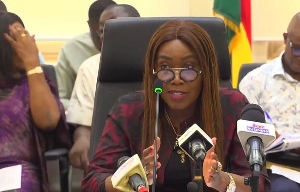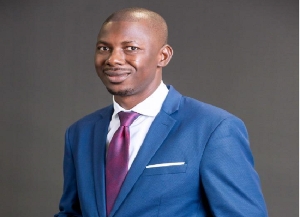General News of Monday, 3 December 2018
Source: ghananewsagency.org
Tertiary educational institutions urged to embrace change
Professor Jophus Anamuah-Mensah, the former Vice-chancellor of the University of Education has called on authorities of tertiary educational institutions to embrace change as see it as a non-negotiable commodity.
He said tertiary education is a dynamic system that required constant changes for its very survival, adding that institutions that fail to recognise this dynamism, especially in this ever-changing technology-controlled world, stands to become a graveyard. Prof Anamuah-Mensah made the call in an address at the 16th Congregation of the Methodist University College Ghana (MUCG) at Dansoman in Accra.
He said there was the need for government, regulatory bodies, tertiary institutions and other stakeholders, including industry players to take a second look at the approach to running tertiary education in the country. “Tertiary education constitutes a strategic asset to the nation and as such its management and operation should not be left to chance as its being done now,” he said.
Prof Anamuah-Mensah said the 204 institutions in the tertiary education sector should not be left to do what they want, and that, they need to be differentiated and diversified and their missions clearly stated so that regulations could be put in place to avoid what he termed; “mission creep,” which has become so common.
He said the country need reforms that would thoroughly transform the Ghanaian tertiary education system and give it the capacity to meet prevailing needs of the country whilst living up to global trends.
He challenged all tertiary education institutions in the country to critically review their operations so as to allow for restructuring of programmes and revision of course contents, review of faculties, staffing and policies so as to make them suitable and relevant to the current needs of society.
Prof Akwasi Asabere-Ameyaw, the Principal of MUCG said the wage bill of the university was unacceptably high and unsustainable and as such the administration has no option than to cut down the staff strength within the shortest possible time. The number of part-time lecturers, he said, has been reduced from 120 to 35, and that, this was estimated to save the university about GHc200, 000.00 a semester.
This notwithstanding, the university would soon start the retrenchment of a number of permanent staff in addition. Prof Asabere-Ameyaw appealed to the government to reassess the Free SHS programme to know the enormity of the challenge and to call for support from private individuals and organisations to enable the programme to run smoothly and successfully.
Prof Chris Gordon, a representative of the Vice-Chancellor of the University of Ghana urged the graduates not to fall prey to the negative pressures in the professional circles, competitions that did not exist or the desire for things that would not promote personal, professional or spiritual growth.
Prof Daniel Agyapong, who represented the Vice-Chancellor of the University of Cape Coast said inappropriate auditing, monitoring and evaluation of projects have led to the wastage of millions of Ghana cedis in the delivery of shoddy projects in the country.
He said: “There lies a responsibility on educational institutions to re-examine their curricular and training methods so as to introduce or strengthen the teaching of courses in entrepreneurship, ethics and stewardship, corporate governance, CSR and Monitoring and Evaluation.”













